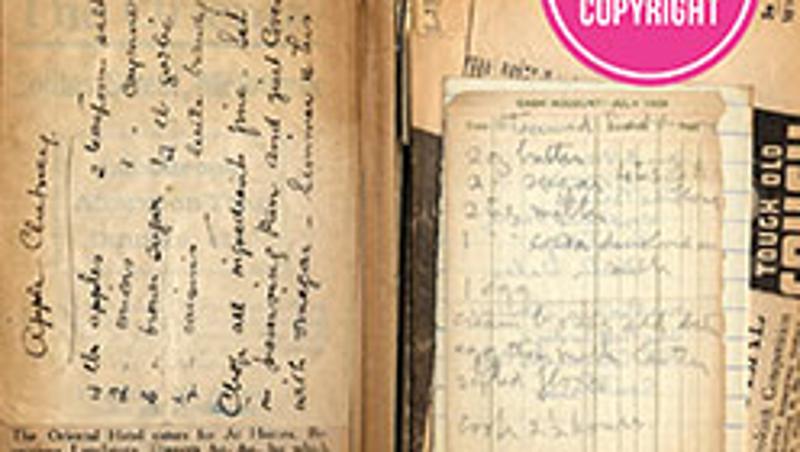
Much of Australia's social history - the letters, recipes, photos, diaries of the people who went before us - is locked away forever because, as unpublished works, copyright in them lasts indefinitely if the owner has not given permission for their publication.
Now, libraries, including QUT, and museums around the country are campaigning to unlock these glimpses of bygone lives with the national event, Cooking for Copyright, to call for the same copyright rules as those for published material which is 70 years after the death of the creator.
QUT Intellectual Property Law professor Matthew Rimmer will speak at QUT Library's Cooking for Copyright event, on July 31 in the Gardens Point library, about how copyright extensions have largely been driven by trade agreements with the United States seeking to protect Disney and other Hollywood productions.
QUT copyright officer Nerida Quatermass said the colour and richness of the everyday lives of our ancestors contained in these items can't be digitised and made publicly accessible unless copyright has been given by the person who created the item, or by a family member.
"Sometimes this is impossible to obtain so these important facets of our history remain hidden," Ms Quatermass said.
"It means that people researching their family history, historians and historical societies, and museums cannot access these records and the wonderful windows into the attitudes and thoughts of people in the past they represent."
Ms Quatermass said published works' copyright is limited to 70 years after the death of the creator for published works, but copyright on unpublished works lasts forever.
"It limits libraries' ability to digitise material and for people to search for their family name. Libraries and museums seek permissions when they receive donations but they have items that have been donated over time with no clear access to the copyright holder."
Professor Rimmer said Australia had had to fall into line with the US in 2004 with the signing of the Australia United States Trade Agreement.
"The really big problem has been the extension from 50 to 70 years of copyright after the death of the person who created the item or owned the copyright," Professor Rimmer said.
"Australia had to extend copyright on published material from 'life plus 50 years' to 'life plus 70 years'.
"If the proposed Trans Pacific Partnership is signed it will mean all the countries on the Pacific Rim will have to toe the line on life plus 70 years for copyright.
"Copyright on unpublished material, the artifacts that really give us insight into how ordinary people lived in the past, is unlimited.
"This is a real problem for the protectors of our cultural heritage - libraries, archives, galleries and museums - when they have 'orphan' works, that is works whose owners are dead or cannot be found.
"Our cultural treasures and national histories should not be locked up because of unbalanced copyright laws.
"We need to reform and modernise Australian copyright law so that our libraries, museums, archives, and galleries can digitise their collections, and make them accessible for all to enjoy."
Media contact: Niki Widdowson, QUT media, 07 3138 2999 or n.widdowson@qut.edu.au.


